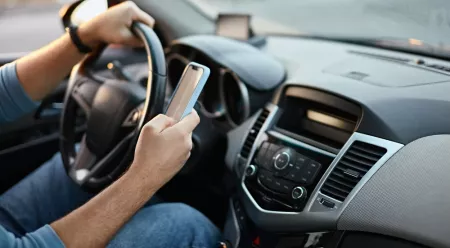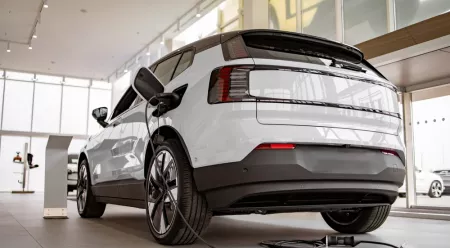Auto insurance policies are mandatory in most countries. But what if you do not own a car but rent out one every so often? Is there an insurance policy that you should get to protect you against accident liability? If this is your situation, you need a non-owner car insurance policy.
Let’s define a non-owner car insurance policy
A non-owner car insurance policy is a liability policy that safeguards policyholders if they are involved in an accident while using cars owned by other parties. Just like any other insurance policy, non-owner insurance policies come in handy when the policyholder is involved in an accident. However, they have different rules in comparison to regular auto insurance policies. Read also this post about how to transfer vehicle ownership in Ontario.
Additionally, drivers should know that in order to be eligible for a non-owner car insurance policy, they need to already have an active personal lines policy or a CGL (commercial general liability) along with commercial auto insurance. You can reach out to your auto insurance provider to learn more about these prerequisite policies.
Who needs a non-owner car insurance policy?
The inclusion of the term ‘non-owner’ shows that a person is driving a car which they do not own. As such, you will need a non-owner car insurance policy if:
-
You frequently rent cars- In most instances, you will be required to assume full responsibility when using a rented car. Rental car coverage can be bought from the rental car company. However, the coverage you get from the rental car company is more expensive and offers less protection compared to a non-owner insurance policy.
-
You frequently drive another person’s car- In instances where your car is not functional, or you sold it, you may use another person’s car to move around. While their auto insurance policy will cover you provided you are using the car, your non-owner car insurance policy will act as an extension of their auto insurance liability policy. This gives you an advantage if you get into an accident where the damages exceed what their policy will cater for. Your non-owner car insurance policy caters to the extra payments, ensuring you do not cover the damages using out-of-pocket payments.
-
You use car-sharing services- While car-sharing services often have the minimum insurance coverage, having non-owner insurance coverage assures you of extra protection if you get into a really bad accident.
What do non-owner car insurance policies cover?
Before you purchase a non-owner car insurance policy, it is important to understand what is covered and what is not covered. This eliminates any uncertainties and keeps you prepared if an accident occurs.
Non-owner insurance policy covers are limited to liability coverage. This means that it covers for property damage and bodily injury that the other party incurs from an accident caused by the policyholder. Also, please note that a non-owner insurance policy only covers the policyholder and not other drivers. However, most insurance companies permit non-owner car insurance policyholders to add:
-
Personal Injury Protection- These cover rehabilitation and medical expenses the non-owner car insurance policyholder might incur in getting the passengers and themselves treated as a result of an accident. It can also cover additional expenses such as lost wages.
-
Underinsured/ Uninsured motorist coverage- This additional coverage will cater to the costs incurred if the policyholder is involved in an accident caused by a driver who doesn’t have an auto insurance policy. It will also cater for damage costs if the accident is caused by a driver who cannot pay the full extent of the damage.
A non-owner car insurance policy does not cater for:
-
Comprehensive coverage- The non-owner insurance policy is quite limited. As such, it does not cover car damages caused by falling objects, extreme weather, theft, vandalism or fire.
-
Collision coverage- A non-owner car insurance policy does not cover damage caused to the vehicle after an accident.
-
Roadside assistance- This will not cover emergency assistance such as flat-tire changes, towing and jump-starts.
While a non-owner car insurance policy is vital, you will not need one if:
-
You own a car- In this instance, a regular car insurance policy should be sufficient.
-
You use a car owned by someone in your household- If you frequently borrow a car from your partner or parent who you live with, you do not need a non-owner car insurance policy. The most prudent action to take is to be listed on their insurance policy. Most insurance companies even require people from one household to be listed on the owner’s policy cover.
-
You barely use borrowed cars- If you use borrowed cars very infrequently, paying for non-owner car insurance can be a waste of funds. The best solution is to ensure you are added to the policy holder’s insurance cover. This will provide better coverage and avoid unnecessary non-owner car insurance premium costs.
-
You intend to use a borrowed car for a long period- If you plan to use a borrowed car for a long period, regular auto insurance will safeguard you better from accidents than a non-owner insurance cover.
What factors determine a non-owner car insurance premium?
Just like any other auto insurance policies, insurance companies do not offer a one-off non-owner car insurance cost. As such, the common pricing factors include:
-
Your age- Younger drivers are often less experienced. As such, insurance companies cover this risk by issuing expensive premiums compared to older experienced drivers. In addition, your gender might be one of the factors as well. You can learn more by checking out our guide on car insurance for ladies in Canada.
-
Your driving history- If your driving history involves traffic violations such as speeding and DUI, you can expect to remit more premiums compared to people with no or fewer traffic violations. For more information, you can also check out our guide on what is considered careless driving in Canada.
-
The level of coverage you want- If you want higher policy limits, be ready to remit higher premiums. To be more safeguarded, it is advisable to go above your state’s minimum liability requirements.



